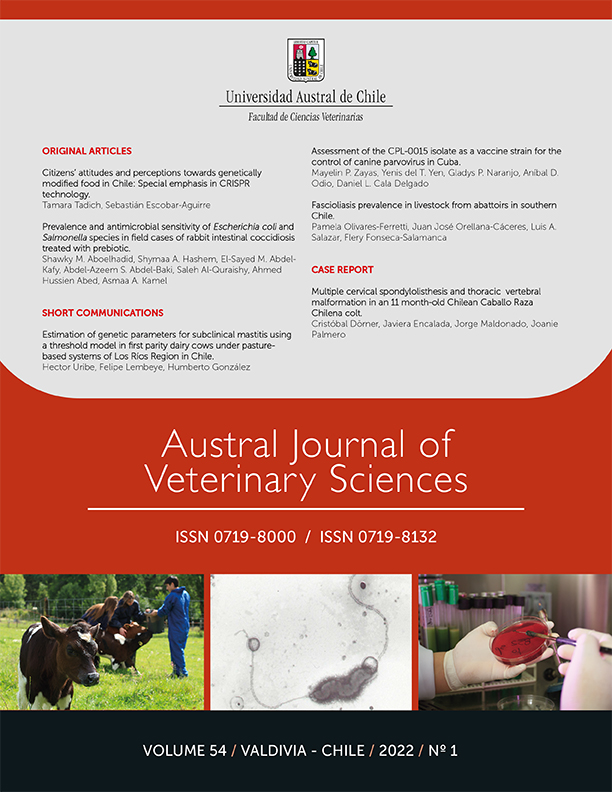Fascioliasis prevalence in livestock from abattoirs in southern Chile
Contenido principal del artículo
Resumen
Fascioliasis is a widely distributed parasitic zoonosis caused by the trematode Fasciola hepatica that affects livestock production and generates high economic losses. In Chilean authorised abattoirs, the infected livestock livers are condemned during the veterinary inspection. This study aims to evaluate the prevalence of fascioliasis in Chile from 2014 to 2016 and also monthly from 2002 to 2015 in livestock (cattle, pig, sheep, horse and goat) slaughtered in abattoirs of La Araucanía region, southern Chile. To do this, the available records on abattoirs provided by the sanitary authority were analysed. A descriptive statistics and trend analysis of the data by jointpoint regression was carried out. The Biobío and La Araucanía regions registered the highest levels of parasitosis in the country recording levels of 59.18 and 44.74%, respectively, and presented 50.03% of the liver condemnation rate in cattle. During the study period, a total of 2,239,164 animals were slaughtered and 40.59% infected livers with F. hepatica were condemned in the 9 existing abattoirs of La Araucanía region. The abattoirs located in the cities of Temuco (51.43%) and Angol (65.09%) recorded the highest percentages of fascioliasis. The cattle species recorded the highest number of slaughtered animals and liver condemnation (54.52%). The presence of the parasite was recorded annually and monthly and it was possible to observe a slight increase in fascioliasis over the years. This study provides updated information on the fascioliasis prevalence in the country and the dynamics of condemnation in endemic areas such as La Araucanía region, which could contribute to the control and prevention of this zoonosis.

